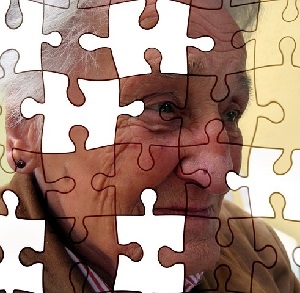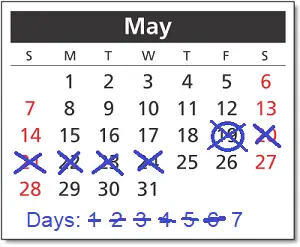- Home
- Better Memory
- Smoking Increases Risk of Dementia
Smoking Increases Risk of Dementia by 45%
In case you need yet another reason to quit smoking cigarettes, listen to this: so-called "cancer sticks" are linked to a much higher risk of Alzheimer's dementia.
According to the World Health Organization (WHO), smokers have a 45% higher risk of dementia than non-smokers.1,2
Maybe we should call cigarettes dementia sticks!
Cancer is bad enough, but dementia too? Maybe it's time to kick the habit for good.
Below I explain the trick I used years ago to stop smoking. It might work for you.
How Does Smoking Cause Dementia?
Smoking increases your chances of dementia by:
- Hardening your arteries. This decreases oxygen and nutrients in your brain.
- Raising homocysteine levels. This is a known risk factor for dementia.
- Causing inflammation and oxidative stress. This leads to brain cell death.3
You can't control some Alzheimer's risk factors, such as how old you are and your family medical history. But you do control your smoking habit. Yes, it is an addiction, but addictions can be beat.
The Awfulness of Alzheimer's Dementia
Alzheimer's disease is an incurable form of brain degeneration that occurs mostly (but not only) in those over the age of 65. Its hallmark is a form of dementia that gradually leads to severe loss of memory and ultimately death.
 Alzheimer's - A Frightening Disease
Alzheimer's - A Frightening Disease
The person affected by Alzheimer's forgets everything of importance to them - friends, family, surroundings, and even who they themselves are. Then, once their very selves are gone, and lost in a dark abyss of confusion, they succumb to the condition.
This is a scary disease, and it's more common today than it ever has been. One in 10 people over the age of 65 now have Alzheimer's dementia.4
I'll never forget how President Ronald Reagan's daughter Patti Davis described, shortly after her father was diagnosed with Alzheimer's, that "...he stood in the living room and said, 'I don't know where I am.'"
The former "leader of the free world" not able to recognize his own living room... that's how shocking and tragic and devastating Alzheimer's dementia is.
My great-grandmother died of Alzheimer's in the 1980's. I remember her, a vibrant, strong woman, who had endured and overcome so many challenges during her life, including raising four children through the Great Depression, reduced to a helpless shadow of her former self.
You do not want Alzheimer's dementia!
So why continue to smoke, a dangerous, expensive, and - face it - dirty habit that increases the chances of literally losing your mind, and then your life? Surely whatever pleasure you derive from smoking isn't worth that awful fate.
Don't Forget Cancer & Other Diseases
A former pack-a-day cigarette smoker myself, I managed to quit years ago, on May 19, 1995, and thank goodness I did.
We weren't sure back then whether smoking increases Alzheimer's risk. In fact, the smoking industry was trying hard to convince everyone that smoking was actually protective against Alzheimer's. It turns out this was biased propaganda that has since been debunked.5,6
But even then we already did know smoking is linked to all kinds of nasty cancers including throat, mouth, and lung cancer.
According to the National Cancer Institute,7
Smoking causes cancers of the lung, esophagus, larynx, mouth, throat, kidney, bladder, liver, pancreas, stomach, cervix, colon, and rectum, as well as acute myeloid leukemia.
That's a frightening list. But let's not forget the other chronic and debilitating and painful diseases linked to smoking:
Smoking also causes heart disease, stroke, aortic aneurysm..., chronic obstructive pulmonary disease... , diabetes, osteoporosis, rheumatoid arthritis, age-related macular degeneration, and cataracts, and worsens asthma symptoms in adults.
We're not done yet:
Smokers are at higher risk of developing pneumonia, tuberculosis, and other airway infections. In addition, smoking causes inflammation and impairs immune function.
Wow. Why in the world did I ever start smoking? Looking back, I think it was a combination of peer pressure, not understanding the real risks, and a dash of willful ignorance.
After several years of smoking every day, I finally woke up and let the habit go. The way smoking aggravated my allergies and made me feel generally anxious and awful helped motivate me to give it up.
Not to mention I always smelled like smoke, and the cravings and anxiety when I couldn't get a cigarette drove me crazy. I literally reached the point where I was sick of the habit and wanted out.
I hope this article is your wake-up call. All those cancers and chronic diseases, and now Alzheimer's dementia, too? Enough is enough!
Simple Way to Quit Smoking that Worked for Me
I waited until a Friday night to quit, a weekend evening when I knew I wouldn't be going out. Coincidentally, I had a nasty head cold that day, aggravated by my smoking, of course. So I was doubly ready to be done with it.
 Count the Days
Count the Days
I don't know where I heard about this trick, but I decided to start counting my days without a cigarette. I made a rule that if I cheated and smoked a cigarette, I would have to cancel my Total Day Count and start over.
And obviously, I threw out all my packs of cigarettes, and ash trays, and my lighters and matchbooks.
Staying quit, especially during the first few days, was challenging. Willpower and motivation are definitely required.
I was determined, and I pressed on, and I kept count of the days. One, two, three,... every day another victory. I basically hibernated in bed that first weekend.
But here's the power of counting the days: once I reached 21 days, 30 days, 50 days, 100 days, I hated the thought of nuking all that progress and having to start the count over.
It has been 9,164 days since I quit smoking, according to the calculator on timeanddate.com. That's nearly 220,000 hours; over 13,000,000 minutes! Do you really think I would jeopardize those amazing totals for one stupid cigarette?
One day at a time, I just kept going. After awhile, a long while, the cravings lessened, then finally went to zero.
Today I can be in the same room as someone smoking, and the odor of smoke doesn't create any desire at all in me to pick up a cigarette. More a sense of nostalgia, if anything. So I am proof you can get there.
This simple trick worked for me. I can't guarantee it will work for you, but it might. And it's free, so try it and see!
And by the way, if my trick doesn't work for you, don't give up. Try another method. Perhaps the nicotine patch, perhaps smoking aversion therapy. Many people have found hypnotherapy helped them quit smoking, a treatment known as "stop smoking hypnosis."
Quit Smoking to Reverse Your Death Risk
By quitting smoking, you can undo a lot of the damage cigarettes have done to you over the years. Give it up, and over time you'll significantly lower your death risk from smoking, while at the same time eliminating a bad habit that is a main cause of memory loss in older people.
 Quit to Reverse Death Risk
Quit to Reverse Death Risk
The sooner you can quit, the better. A study published in the journal Lancet of one million women born around 1940 (back when just about everybody smoked) found those under 40 who quit smoking avoided 90% of the death risk attributed to smoking. Those under 30 who quit smoking avoided 97% of the death risk.8
But even if you are somewhat older, you can probably undo much of the risk. Another study found that people over 65 who quit smoking could potentially reduce their risk of death to that of a lifelong non-smoker within 8 years after quitting.9
Imagine how especially tragic it would be to suffer Alzheimer's dementia in your golden years... if you could have side-stepped this devastating disease by giving up your smoking addiction years before.
Lower your risk of Alzheimer's and other dread diseases, including cancer, by kicking your smoking addiction. Try my quit-smoking trick or get in a smoking cessation treatment program. Please don't wait until it's too late.
Published: 04/10/2020
Last Updated: 06/20/2020
[+] References for Smoking Increases Risk of Dementia

Newest / Popular
Multiplayer
Board Games
Card & Tile
Concentration
Math / Memory
Puzzles A-M
Puzzles N-Z
Time Mgmt
Word Games
- Retro Flash -
Also:
Bubble Pop
• Solitaire
• Tetris
Checkers
• Mahjong Tiles
•Typing
No sign-up or log-in needed. Just go to a game page and start playing! ![]()
Free Printable Puzzles:
Sudoku • Crosswords • Word Search










